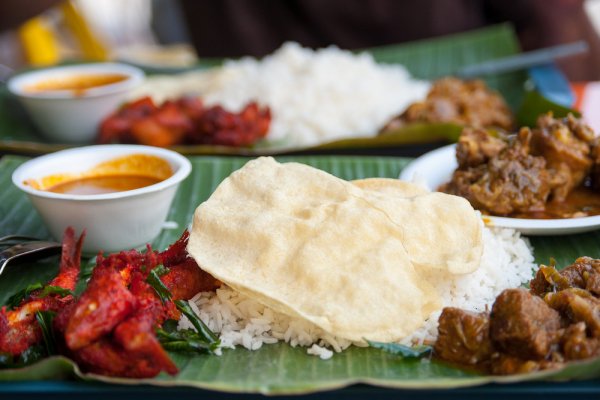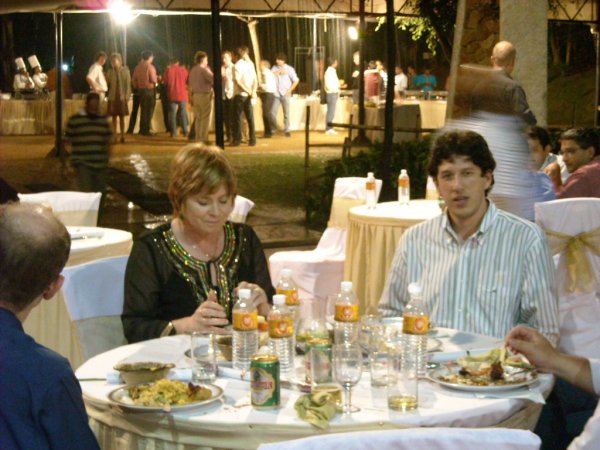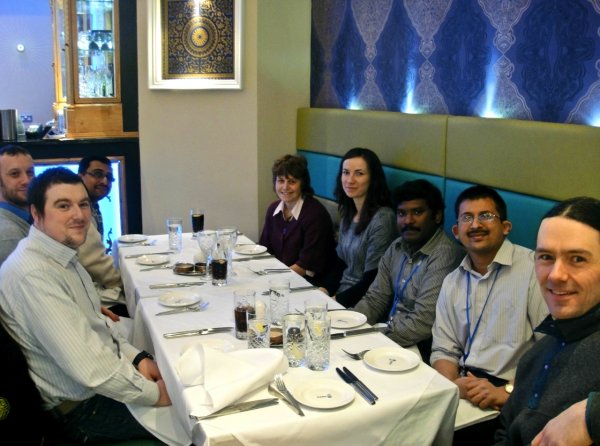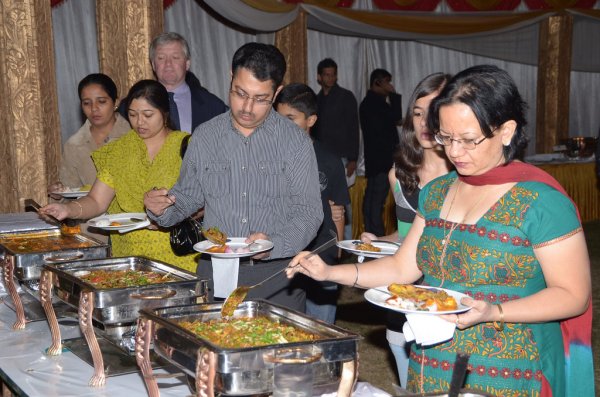Business Culture: Business Entertaining
Activities
Initial business entertainment is usually done in elite restaurants. Business lunches are fairly common in India. Business dinners are generally considered social affairs, and it's best not to bring up business-specific subjects unless your host introduces the topic. "Power breakfasts" are also common in certain industries.
Large cities such as Delhi, Bangalore, Calcutta, and Mumbai have a wide variety of cuisines available, including Thai, Chinese, assorted Continental fare, and of course traditional Indian dishes. Particularly in the south, traditional Indian food can be extremely spicy for some Western palates. However, most restaurants, especially those accustomed to foreign clientele, will be willing to tone down the spice if you ask.
Foreigners often receive numerous social invitations from Indians—even casual acquaintances—as this is a key aspect of Indian hospitality. You may also find your Indian counterparts invite you casually to "drop by any time." This is a genuine invitation; Indians often do stop by without announcement for social visits. However, it's best to phone ahead.
In meetings and social events, your Indian counterparts often offer guests beverages such as tea, coffee, or soft drinks along with light snacks. It's common practice to refuse the first offer but to accept the second or third. It's not considered polite, however, to refuse refreshments entirely.
Etiquette
At restaurants, the person who issued the invitation is usually the one who pays. There are exceptions, however. If you are a woman and have issued a dinner invitation to a male business counterpart, the man may insist on paying for the meal. Men accepting an invitation from an Indian businesswoman should always offer to pay, although the woman may politely refuse.
A 10 percent tip is often included in the bill. If you wish, you can leave a small amount of money as an extra tip on top of the automatic service charge.
Instead of thanking your host, reciprocate by hosting a comparable meal of your own—either at a restaurant or in your residence. However, never host a dinner that is noticeably more extravagant; this could embarrass your guest.
Most traditional Indian dishes are eaten with the hands. Use the first three fingers of your right hand—never the left, as it is considered "unclean"—and your thumb to handle your food. However, when taking food from a communal dish, always use a spoon—never your fingers. If you have no utensils, use a piece of chapati or poori, two common types of Indian flatbread, to pick up small chunks of food.
If you are hosting a dinner, bear in mind that many Indians do not drink. It's best to have soft drinks and fruit juices available for those who avoid alcohol. In addition, food is often inextricably tied to religious customs in India. When planning a menu for a dinner you're hosting, be sure to include vegetarian options. For nonvegetarians, dishes of chicken, fish, and lamb are usually safe choices.
If you are invited to someone's home, it's best to arrive about 15 to 30 minutes later than the stated time. Sometimes, a flower garland is placed around the neck of the guest of honor; after a few minutes, remove the garland and carry it in your hand.
At a dinner party, your host will probably serve you. Do not refuse food, but don't clean your plate unless you want more—Indians consider it a breach of etiquette to let a guest's plate go empty.
Don't be surprised if the lady of the house spends most of her time in the kitchen. In many Indian communities, men and women conform to traditional roles and women usually do most of the cooking. Lavishly praising the meal is considered good etiquette.
It can be difficult to plan for the number of guests who will arrive at an event you are hosting. Some guests won't come even if they've told you they will. Others may bring guests of their own, whether you've invited them to do so or not—especially if they have a fairly close and informal relationship with you. Because of this, it's better to host a buffet-style meal rather than a more meticulously planned sit-down dinner.
It's considered polite to bring a small gift, such as a box of sweets or something small from your native country, to someone's home for a dinner party. Avoid bringing alcohol unless you know the host and most of the guests drink. If the host has children, it's polite to bring a small gift such as a toy or book for the kids as well. A bouquet of roses is generally a good gift, but avoid white flowers or frangipani, which are associated with funerals.
Article written for World Trade Press by Jennifer Williamson.
Copyright © 1993—2024 World Trade Press. All rights reserved.

 India
India 



